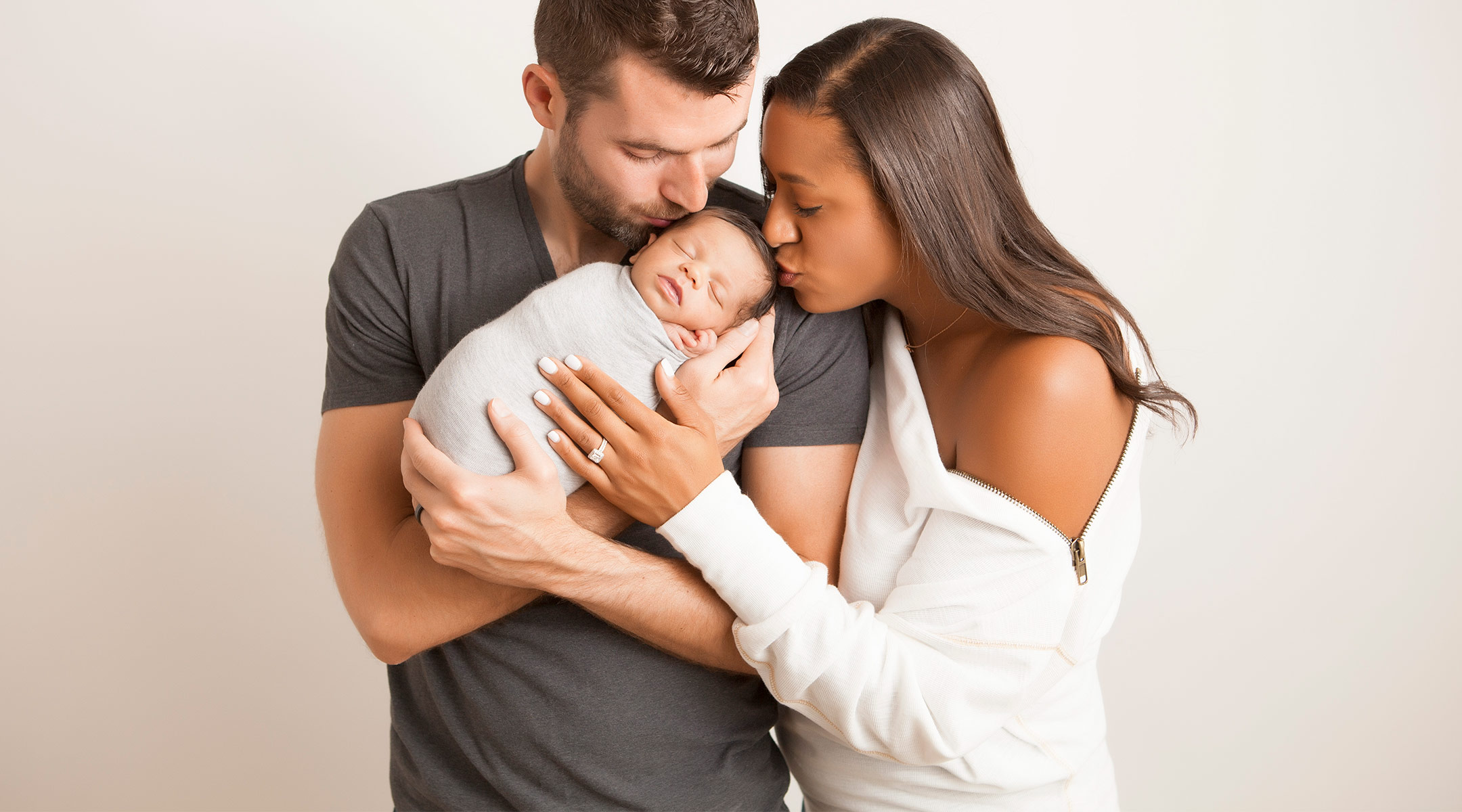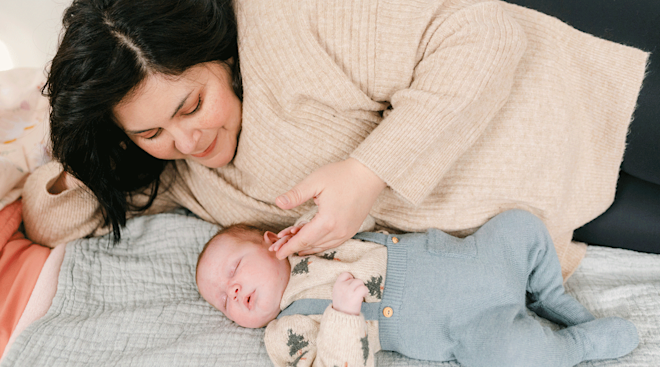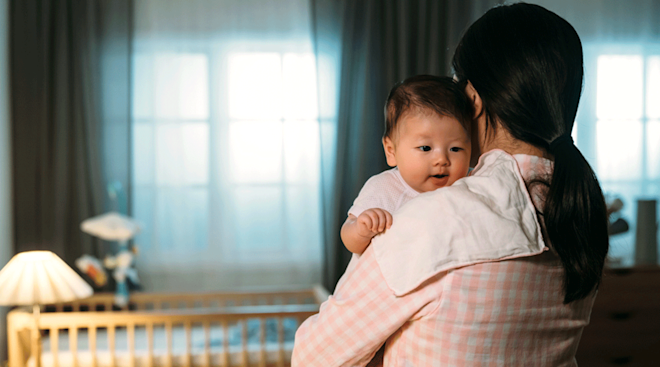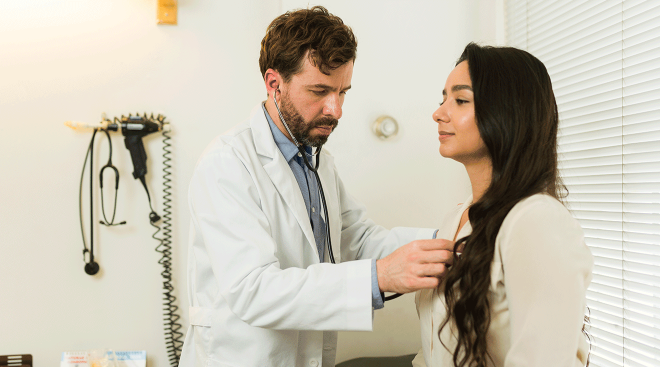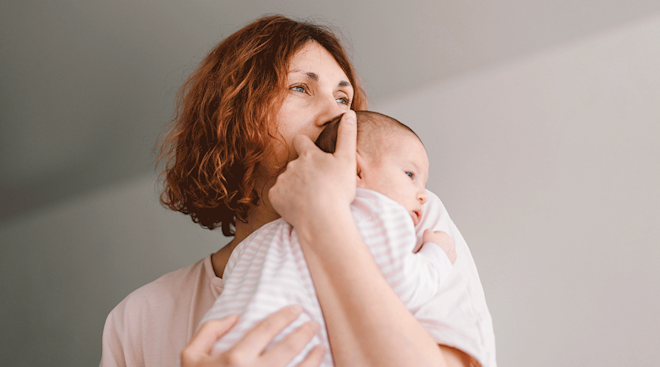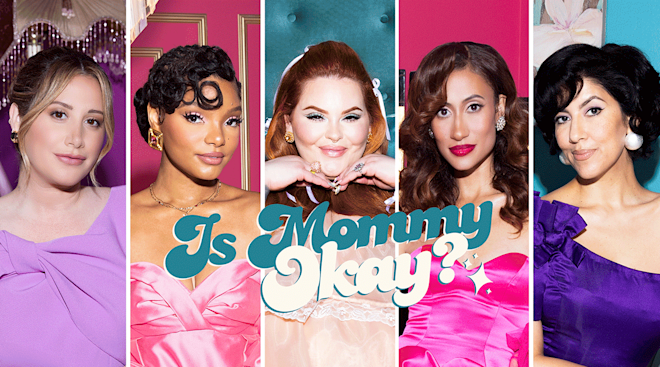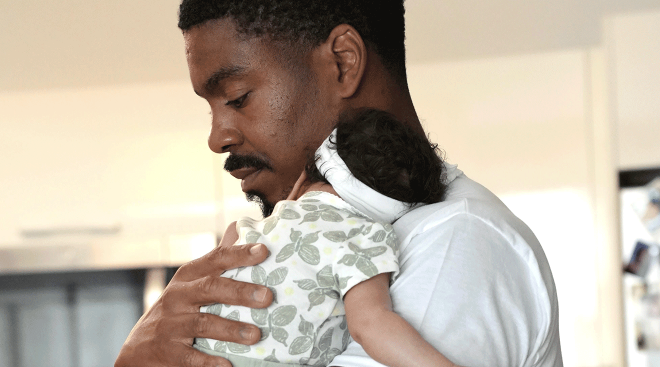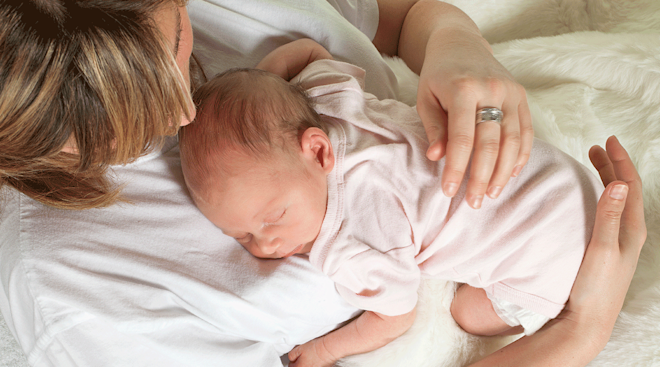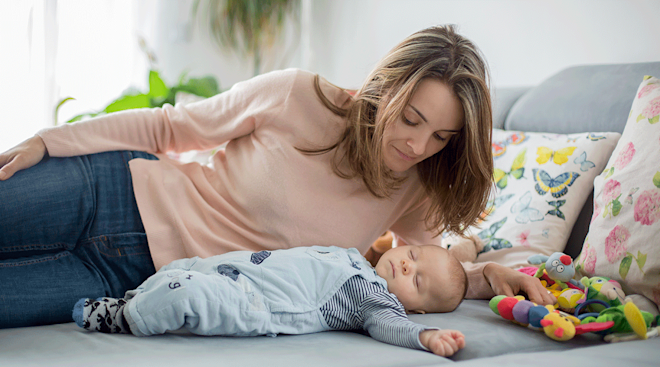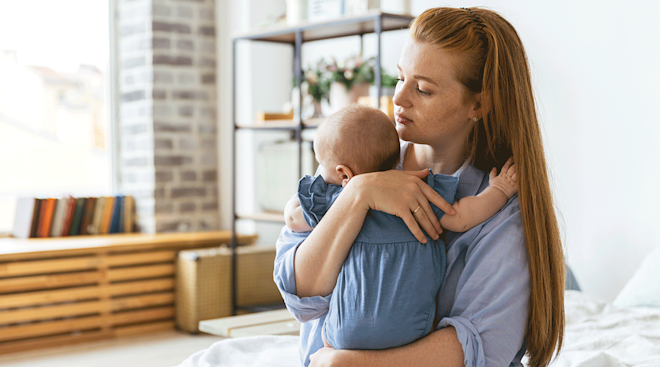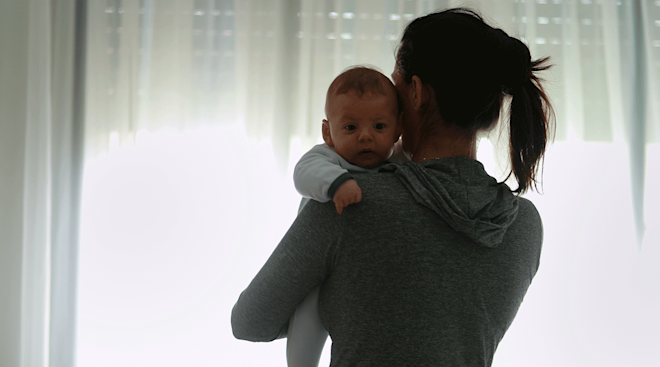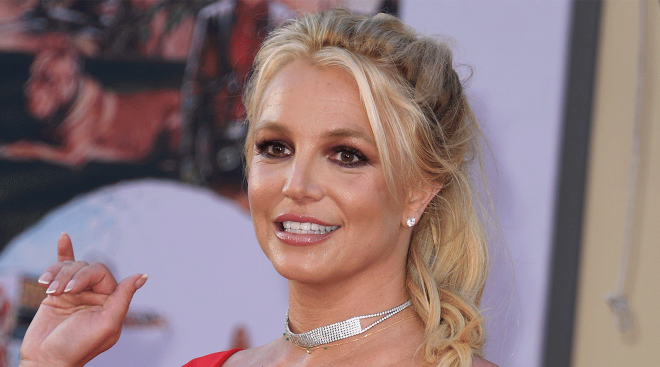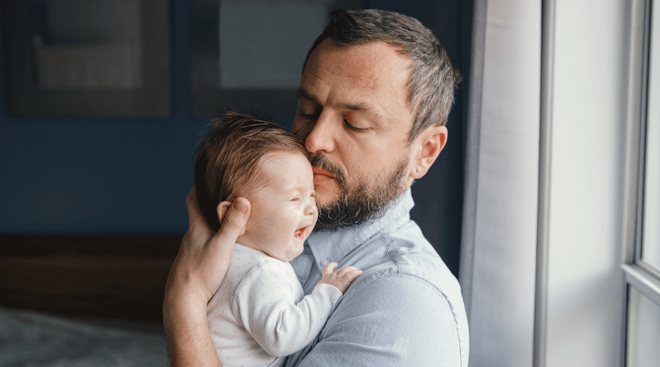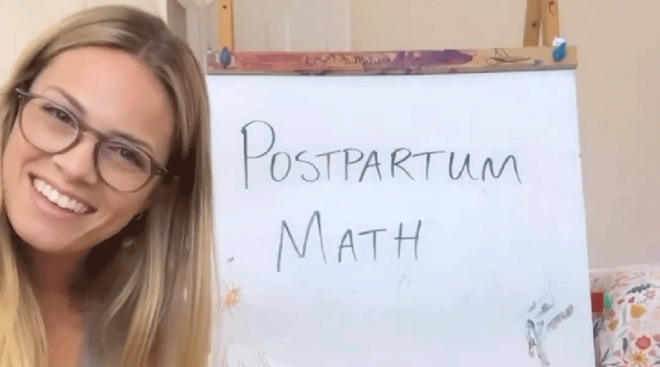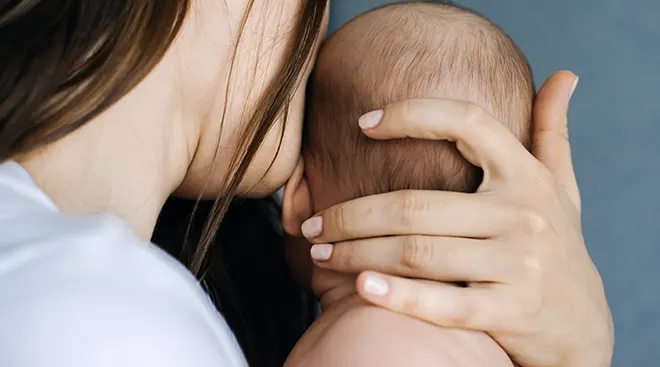I’m an OB and I Suffered From Postpartum Depression
To the women suffering from postpartum depression: I hear you. I feel you. I am you.
As an OB-GYN, I knew the signs of PPD. But even with all of my knowledge, even knowing that suffering from PPD was not my fault, I still felt ashamed, like I wasn’t a good mom for feeling the way I did.
I remember feeling like I was in a dark hole, and things that usually made me happy didn’t anymore. I usually love doing yoga and running, but I just…couldn’t. I couldn’t enjoy my newborn baby. I couldn’t get up to exercise. I couldn’t talk to anyone because I felt alone and ashamed. I knew I wasn’t bonding with the baby because when he cried, I cried and I just (exhale) couldn’t…
At first, I chalked my feelings up to stress, to fatigue, to the difficulty of breastfeeding—basically anything but PPD. But the longer it went on, the more I knew I needed to do something. My husband and some close mom friends were a life-saver. I talked to them throughout those early weeks of motherhood, but I think it took me telling them how I felt—how I really felt—for them to realize how bad it had gotten for me.
1 in 9 women suffers from postpartum depression. And PPD doesn’t discriminate. It can affect any woman of any race and socioeconomic background.
Before my own journey through PPD, I didn’t personally know anyone who had it—or so I thought. But after talking to my friends, I found out several actually did and, unbeknown to me, sought treatment for it. I felt awful knowing they had gone through this and I wasn’t there to support them. But I get it: It’s an emotional journey, and a personal one at that. But it shouldn’t be a guilt-ridden or shameful one.
Even as an OB-GYN—someone trained to look for the signs of PPD in my postpartum patients and to talk to women about PPD—I felt bad about it. I worried I’d be judged for it. I felt like I couldn’t, and shouldn’t, talk to anyone about it because everyone figures it out, right?
Wrong.
I finally realized I needed to talk to people and share what I had been going through. And when I was able to do that, I was able to get better. If you’re suffering from postpartum depression or anxiety, my recommendation—as a mother and as a physician—is to talk to someone. Whether it’s a therapist, your OB-GYN, your partner or friends, make sure you’re communicating how you’re feeling. You may find it helpful to write down your feelings in a journal or document your experience. And if you need to cry, do it! We’ve all been there. Most importantly, do not place blame on yourself. You are not less of a mother or woman because you suffer from postpartum depression or anxiety.
When I was in the throes of PPD, I talked to my husband, to my family, my friends and to my OB-GYN. I talked to a therapist and was able to reshape my expectations for motherhood.
Ultimately I realized that the fantasy ideal that I assumed motherhood would be is just that—a fantasy. There will be good days and bad days, and that’s just part of life and part of motherhood. We can’t control our baby’s mood, but we can control how we think about situations and how we react to them. These days we’re bombarded on social media by pictures of beautiful children and beautiful parents living seemingly beautiful lives, and maybe they are. But I guarantee that even they have their hard days. Just because they choose not to share it doesn’t mean they aren’t struggling too.
When I started talking to friends, I realized that there are so many women who are/were dealing with postpartum depression or anxiety. I wasn’t alone, and neither are you. So why do we feel so isolated and so ashamed? It’s because we don’t talk about PPD enough. And then when women do, no one knows what to say. Everyone clams up, nervous about how to interpret their feelings.
If someone reaches out to talk about their postpartum depression, I have two pieces of advice: First, listen to them and offer a shoulder. Second, don’t diminish anything they say. Don’t tell them they’re just emotional because they gave birth. Tell them they’re not alone, and encourage them to talk to a professional.
My wish for moms is that we be kinder to ourselves, and know that there are days when all we can do is survive. And that’s okay. We’ve all been there. You are not alone.
Temeka Zore, MD, is a reproductive endocrinologist and infertility specialist and board-certified obstetrician and gynecologist currently practicing at Spring Fertility in San Francisco. She enjoys taking care of a wide range of reproductive and fertility issues but has a special passion for fertility preservation and educating and empowering women regarding their reproductive health. Follow her on Instagram @temekazoremd.
Please note: The Bump and the materials and information it contains are not intended to, and do not constitute, medical or other health advice or diagnosis and should not be used as such. You should always consult with a qualified physician or health professional about your specific circumstances.
Navigate forward to interact with the calendar and select a date. Press the question mark key to get the keyboard shortcuts for changing dates.
































